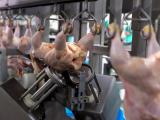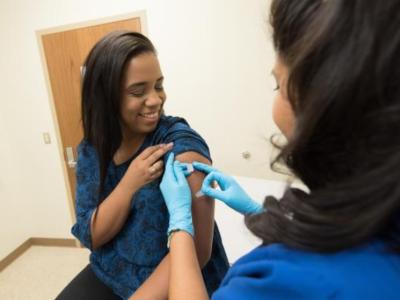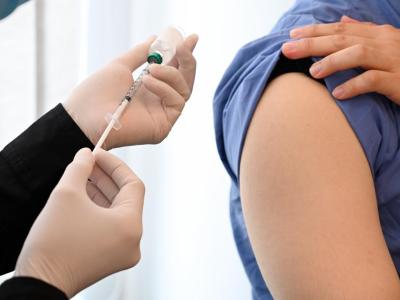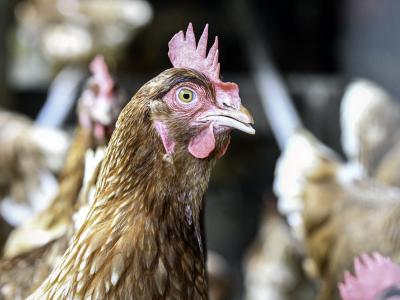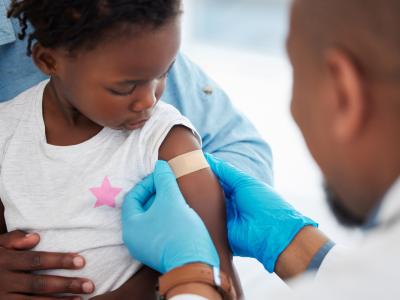Jan 9, 2002 (CIDRAP News) – The Food and Drug Administration (FDA) has released two sets of guidelines designed to help food-related businesses of all kinds prevent food contamination and tampering by criminals or terrorists.
The agency published one set of nonbinding guidelines for domestic food producers, processors, transporters, and retailers, and a separate but similar set for food importers. The guidelines advise businesses to take such steps as restricting access to premises, inspecting incoming vehicles, checking employees' lockers and bags, and running criminal background checks on workers.
The guidelines were developed as a result of growing concern about food safety since the Sept 11 terrorist attacks. "FDA believes it is critical to our national interest and the public health to make guidance on food security available to the food industry quickly," the agency said in a Federal Register announcement of the guidelines' release. Because of its sense of urgency, the agency did not seek public comments before issuing the guidelines, but it is now inviting comments on them with an eye to possible revision.
The FDA is reported to inspect fewer than 1% of imported shipments of food and drugs. Last year the Bush administration asked Congress for funds to hire 210 more food-import inspectors and 100 inspectors for critical points in the domestic food processing and distribution system, according to FDA reports. The House of Representatives in December passed an anti-bioterrorism bill that would authorize the FDA to spend $100 million to hire more food-import inspectors and develop methods for detecting food contamination; that bill awaits reconciliation with a Senate bill that was also passed in December.
The guidelines are intended to cover each link in the chain of food production, processing, and marketing; recommendations are grouped in several categories, including management, physical facilities, laboratories, employees, computer systems, raw materials and packaging, operations, and finished products. The following are some of the specific steps that the FDA advises food businesses to consider:
- Use visual or x-ray inspection to ensure the safety of incoming mail and packages.
- Inspect incoming and outgoing vehicles for suspicious items or activity.
- Restrict access to the overall establishment, food handling and storage areas, laboratories, and sensitive materials such as reagents, bacteria, and drugs.
- Implement an identification system for employees, such as photo badges.
- Bar employees from areas not necessary for their jobs.
- Regularly inspect employees' lockers, bags, and vehicles.
- Watch for unusual behavior by new employees.
- Inspect incoming ingredients, compressed gas, packaging, labels, and product returns for signs of tampering.
- Secure water wells and handling facilities.
- Plan for emergency evacuation in case of a criminal or terrorist event.
- Test prevention measures annually by, for example, staging a mock terrorist event.
Some recommendations that are specific to food importers include the following:
- Inspect incoming products for authenticity, packaging and product integrity, and evidence of unauthorized relabeling or repackaging.
- Inform authorities of any evidence of tampering or sabotage.
- Develop procedures for assessing the safety of abnormal powders, odors, and liquids present on shipments.
An official of the National Food Processors Association (NFPA) praised the guidelines as "a useful framework" that food companies can use to assess their security measures. "The food security preventive measures guidance is both comprehensive and flexible, allowing companies within our very complex and diverse food supply to determine how best to apply it to their own operations," Rhona Applebaum, PhD, NFPA executive vice president of scientific and regulatory affairs, said in a press release. She said the FDA information "helps food companies understand what they need to do—top to bottom—and leaves open to each company to determine how to go about doing it."
The FDA is inviting the public to submit written or electronic comments on the guidelines by Mar 11. In the Federal Register announcement, the agency said it is particularly interested in information on tamper-evident packaging and on methods and procedures for tracking food shipments throughout their travels. Written comments can be sent to Dockets Management Branch (HFA-305), 5630 Fishers Lane, Rm 1061, Rockville, Md. 20852.
See also:
FDA guidance document for food producers, processors, transporters, and retailers
http://www.fda.gov/OHRMS/DOCKETS/98fr/01d_0583_gdl0001.pdf
FDA Guidance document for importers and filers
http://www.fda.gov/OHRMS/DOCKETS/98fr/01d_0583_gdl0002.pdf
Copy of Federal Register announcement of the two guidance documents
http://www.fda.gov/OHRMS/DOCKETS/98fr/010902b.htm






